#baby boom 1987
Explore tagged Tumblr posts
Text

James Spader looking disheveled and mildly pissed off as per usual
#this is a joke i love his resting bitch face#yes he just rolled out of (my) bed and yes he still looks good#james spader#spaderposting#baby boom 1987
44 notes
·
View notes
Text









James Spader as Ken Arrenberg in Baby Boom (1987)
28 notes
·
View notes
Text
Hey so I just had a random thought about something,so basically I remembered watching this movie called baby boom and it was about a business woman inheriting a baby from her dead cousin and her trying to take care of the baby. And I just realized that the movie came out in 1987 and the lost boys came out in 1987, so here is the dumb thought,so what if max inherited a baby from his family and after the boys caused trouble at his store he decided to give the baby to them to make the baby their responsibility in order for them to learn to be more “responsible.”
I don’t know 🤷��♀️ what you guys think? Do you think this is a good idea?
50 notes
·
View notes
Text
Steven Buchners wedding Dress


Here’s Steven Buchners wedding Dress for his wedding to his husband Duke Mantee
#harold ramis#egon spengler#dr egon spengler#humphrey bogart#ghostbusters#rick blaine#the real ghostbusters#casablanca#baby boom 1987#steven buchner#duke mantee#the petrified forest
3 notes
·
View notes
Text
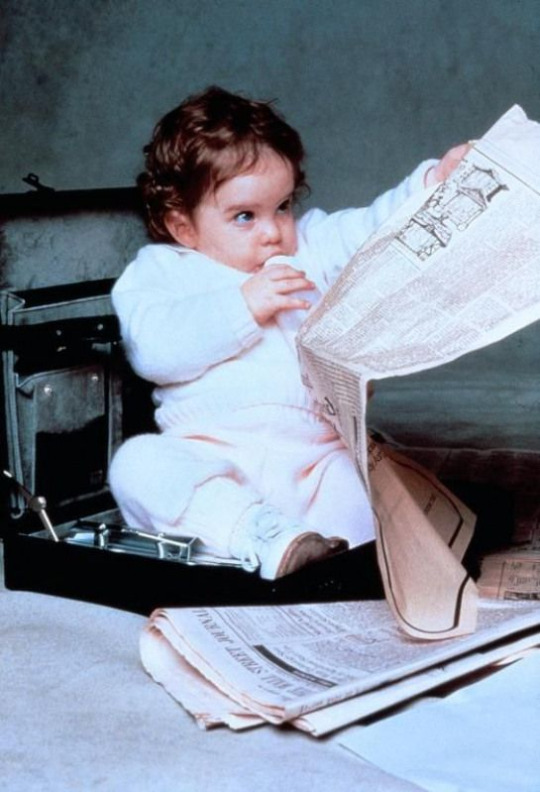
3 notes
·
View notes
Text
duke is in love
alan: your in love duke arnt you
Duke mantee: yeah
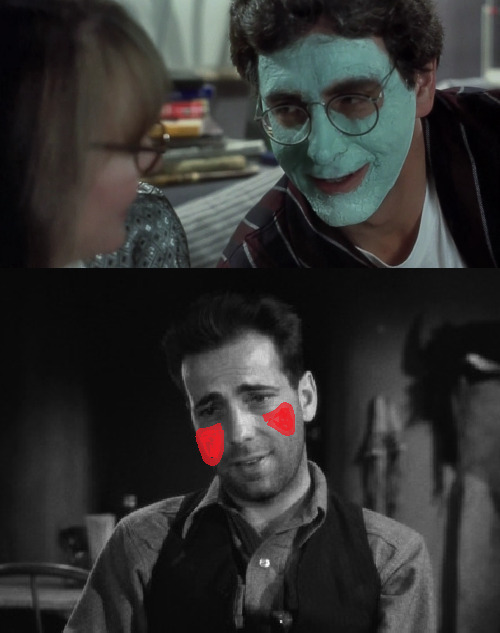
2 notes
·
View notes
Text


James Spader at the Baby Boom premiere, 1987
74 notes
·
View notes
Text
Anything for Shout It Out Loud
I think it is well known that Dressed to Kill was written and recorded in no time at all. That this is true for better part of the first six studio albums is not hard to imagine, but it is especially true for Dressed to Kill, and you can hear it. And yet there are still good songs and ideas on it, which have remained a landmark for the band's classic Kiss sound for decades. Crazy Nights, Carnival of Souls or Sonic Boom spontaneously come to mind as albums worth mentioning, just to spread it out colorfully over the decades. And somehow also Destroyer.
Well, sort of.
And since Sweet Pain and Love Her All I Can are a completely different story, let's just talk about Shout It Out Loud and Anything For My Baby today. And that concerns the first verse line of both songs, sung by Paul. The one of Shout It Out Loud is, of course, not at all dissimilar by chance, right up to the point where it takes the first exit and moves into direction super anthem. This is clearly less of a rip-off and more of something that is due to the over-accelerated songwriting and the resulting immaturity of the songs on Dressed to Kill.
Whether this one line must have been particularly close to his heart and he felt obliged to himself to make more of it, or whether it simply flowed out of his mouth spontaneously while composing with Gene and Bob Ezrin at the piano without much thought, is a matter of pure speculation. One thing, however, is quite certain, namely that they impressively managed to make a lot more out of it.
The magic of the early phase. You just have to love it.
Simply click on the highlighted links and dive in:
Anything For My Baby (1975)
youtube
Shout It Out Loud (1976)
youtube
#Kiss#Paul Stanley#Gene Simmons#Bob Ezrin#Neil Bogart#Anything For My Baby#Shout It Out Loud#Dressed to Kill#Destroyer#1975#1976#Crazy Nights#Carnival of Souls#Sonic Boom#1987#1997#2009#Sweet Pain#Love Her All I Can#Roland Rockover#Youtube
2 notes
·
View notes
Text
The Ronettes - Be My Baby 1963
"Be My Baby" is a song by American girl group the Ronettes that was released as a single in August 1963. Written by Jeff Barry, Ellie Greenwich, and Phil Spector, the song was the Ronettes' biggest hit, reaching number 2 in the US and number 4 in the UK. It is often ranked as among the best songs of the 1960s, and has been regarded by various publications as one of the greatest songs of all time. Ronnie Spector (then known as Veronica Bennett) is the only Ronette that appears on the track. In 1964, it appeared on the album Presenting the Fabulous Ronettes; the only studio album by the Ronettes (credited to "the Ronettes featuring Veronica"). Produced by Phil Spector and released in November 1964 through his label, Philles Records, the album collects the group's singles from 1963–1964. In 2004, it was ranked number 422 on Rolling Stone's list of "The 500 Greatest Albums of All Time".
"Be My Baby" has influenced many artists, most notably the Beach Boys' Brian Wilson, who wrote the 1964 hit "Don't Worry Baby" as a response to "Be My Baby". Many others have replicated or recreated the drum phrase—one of the most recognizable in pop music. As for the opening drum beat, drummer Hal Blaine stated, "That famous drum intro was an accident. I was supposed to play the snare on the second beat as well as the fourth, but I dropped a stick. Being the faker I was in those days, I left the mistake in and it became: 'Bum-ba-bum-BOOM!' And soon everyone wanted that beat." Sonny Bono and Cher were among the backing vocalists. Cher stated in a television interview, "I was just hanging out with Son [Bono], and one night Darlene [Love] didn't show up, and Philip looked at me and he was getting really cranky, y'know. Philip was not one to be kept waiting. And he said, 'Sonny said you can sing?' And so, as I was trying to qualify what I felt my … 'expertise' was, he said, 'Look I just need noise – get out there!' I started as noise, and that was 'Be My Baby'."
The song appears in the opening sequence of Martin Scorsese's film Mean Streets (1973), and the 1987 film Dirty Dancing. The song appears in a fantasy sequence involving Kamala Khan in the Marvel series Ms. Marvel, in the second episode "Crushed". In 1999, it was inducted into the Grammy Hall of Fame. In 2006, the Library of Congress inducted the Ronettes' recording into the United States National Recording Registry. In 2004, it was ranked number 22 on Rolling Stone's list of the "500 Greatest Songs of All Time", where it was described as a "Rosetta stone for studio pioneers such as the Beatles and Brian Wilson." In 2017, the song topped Billboard's list of the "100 Greatest Girl Group Songs of All Time".
"Be My Baby" received a total of 86,9% yes votes!
youtube
#finished#high yes#high reblog#high votes#low no#60s#o1#o1 sweep#lo34#lo34 tie#o234#popular#the ronettes#english
962 notes
·
View notes
Text


Steven Buchner (from 1987's Baby Boom) GIFs again (I know they were previously used in my Janegon vignette). The character does have a dead-on resemblance to Egon, tho.
Just look at him stretch and yawn. LOOK AT HIM!!
I hear a The Weekend song playing in my head (guess which one and I'll mark you as correct in the the form of a reblog or reply in the comments😅)
@bixiebeet @spengnitzed @ariel-seagull-wings @janegon-forever @kawaiisakura143 @soulfulbelieves @lulusplaycorner @remerg @spook-central @spenglerssweetheart
95 notes
·
View notes
Note
Top 80's-70's Rom-Com reccs??
If you have letterboxd, I have a whole list of 80s movies I've watched and rated if you want to sort through that for movie recs (It's linked in my pinned post), but here's a couple right here and now if you don't. I mainly watch 80s movies so sorry if there's only like one 70s movie on here:
Harold and Maude (1971)
Once Bitten (1985)
Modern Girls (1986)
The Purple Rose of Cairo (1985)
Something Wild (1986)
Fatso (1980)
The Heavenly Kid (1985)
Baby Boom (1987)
Peggy Sue Got Married (1986)
Earth Girls Are Easy (1988)
I tried to exclude the common recs you hear about everywhere (Pretty in Pink, Sixteen candles, etc). Hope you enjoy some of these and that they're what you're looking for! Some might be more romantic or comedic than others; or have other genres thrown in, so don't say I didn't warn you I guess lol.
24 notes
·
View notes
Text
Harold Ramis Filmography Part Three


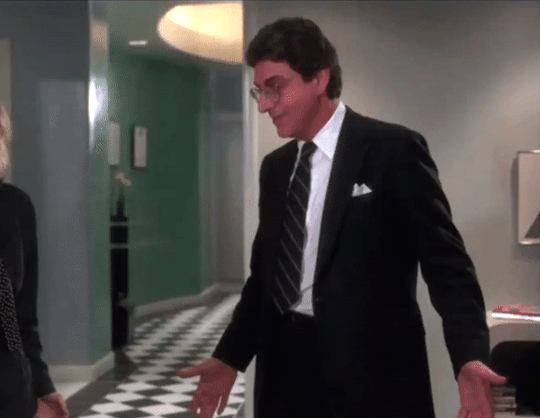

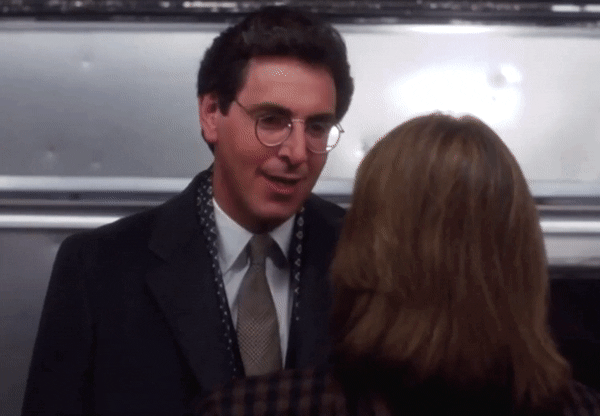

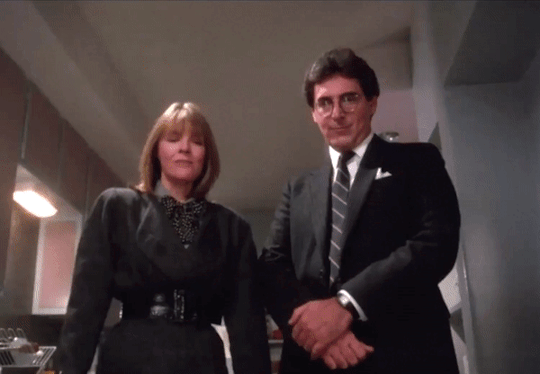
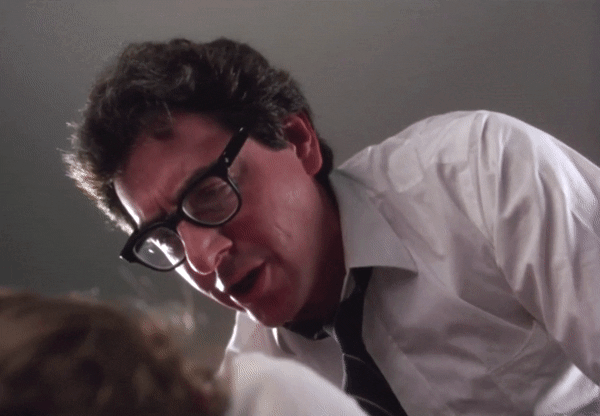
Steven Buchner (Baby Boom, 1987)


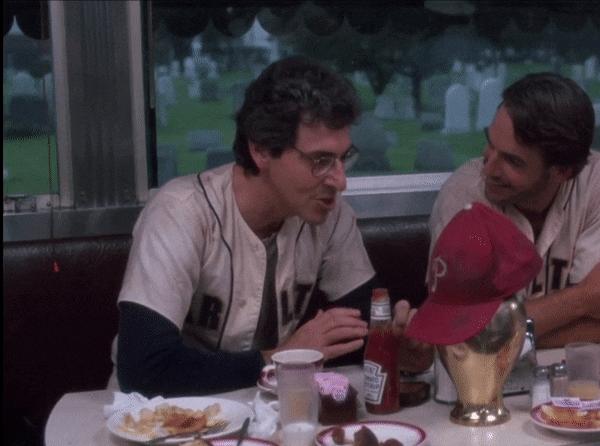
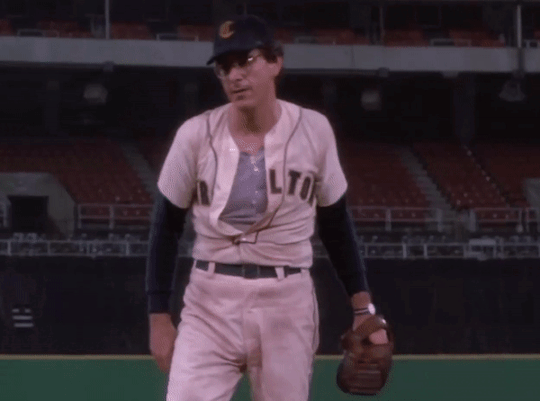

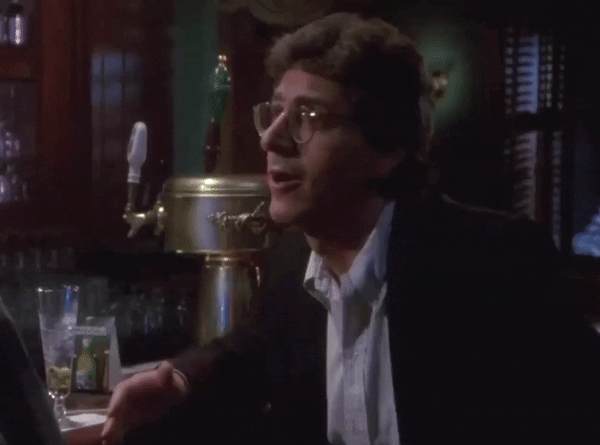
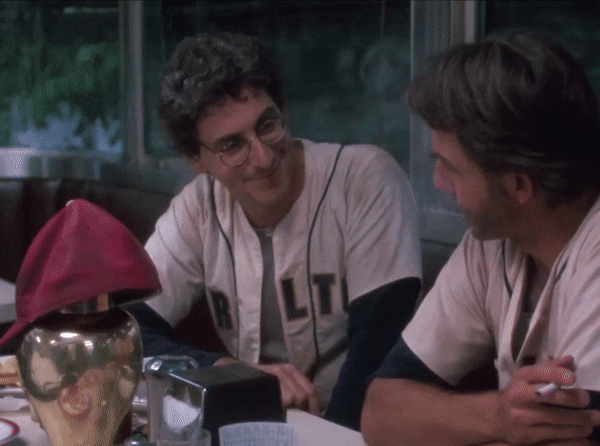

Alan Appleby (Stealing Home, 1988)

[Part One] | [Part Two] | [Part Four] | [Part Five]
#harold ramis#appleby was one of his cutest characters#baby boom#stealing home#steven buchner#alan appleby#gifset#80s movies#for harold#color palette#aesthetic#filmography#ghostbusters
89 notes
·
View notes
Text
my ramgart Playlist
Here’s a playlist I made about my OTP Humphrey Bogart x Harold Ramis AKA Ramgart I hope you enjoy it ramgart fans

#harold ramis#egon spengler#dr egon spengler#humphrey bogart#ghostbusters#rick blaine#the real ghostbusters#casablanca#russell ziskey#steven jordan#stripes 1981#up the river 1930#baby boom 1987#the petrified forest#duke mantee#steven buchner#Spotify
1 note
·
View note
Text
If the "infertility epidemic" was the first round of fire in the pronatal campaign of the '80s, then the "birth dearth" was the second. At least the leaders of this campaign were more honest: they denounced liberated women for choosing to have fewer of no children. They didn't pretend that they were just neutrally reporting statistics; they proudly admitted that they were seeking to manipulate female behavior. "Most of this small book is a speculation and provocation," Ben Wattenberg freely concedes in his 1987 work, The Birth Dearth. "Will public attitudes change soon, thereby changing fertility behavior?" he asks. "I hope so. It is the root reason for writing this book."
Instead of hounding women into the maternity ward with now-or-never threats, the birth dearth theorists tried appealing to society's baser instincts—xenophobia, militarism, and bigotry, to name a few. If white educated middle-class women don't start reproducing, the birth-dearth men warned, paupers, fools, and foreigners would—and America would soon be out of business. Harvard psychologist Richard Herrnstein predicted that the genius pool would shrink by nearly 60 percent and the population with IQs under seventy would swell by a comparable amount, because the "brighter" women were neglecting their reproductive duties to chase after college degrees and careers—and insisting on using birth control. "Sex comes first, the pains and costs of pregnancy and motherhood later," he harumphed. If present trends continue, he grimly advised, "it could swamp the effects of anything else we may do about our economic standing in the world." The documentation he offered for this trend? Casual comments from some young students at Harvard who seemed "anxious" about having children, grumblings from some friends who wanted more grandchildren, and dialogue from movies like Baby Boom and Three Men and a Baby.
The birth dearth's creator and chief cheerleader was Ben Wattenberg, a syndicated columnist and senior fellow at the American Enterprise Institute, who first introduced the birth dearth threat in 1986 in the conservative journal Public Opinion—and tirelessly promoted it in an endless round of speeches, radio talks, television appearances, and his own newspaper column.
His inflammatory tactics constituted a notable departure from the levelheaded approach he had advocated a decade earlier in his book The Real America, in which he chided population-boom theorists for spreading "souped-up scare rhetoric" and "alarmist fiction." The fertility rate, he said, was actually in slow decline, which he saw then as a "quite salutary" trend, promising more jobs and a higher living standard. The birth dearth, he enthused then, "may well prove to be the single most important agent of a massive expansion and a massive economic upgrading" for the middle class.
Just ten years later, the fifty-three-year-old father of four was sounding all the alarms about this "scary" trend. "Will the world backslide?" he gasped in The Birth Dearth. "Could the Third World culture become dominant?" According to Wattenberg's treatise—subtitled "What Happens When People in Free Countries Don't Have Enough Babies"—the United States would lose its world power status, millions would be put out of work, multiplying minorities would create "ugly turbulence," smaller tax bases would diminish the military's nuclear weapons stockpiles, and a shrinking army would not be able “to deter potential Soviet expansionism.”
When Wattenberg got around to assigning blame, the women's movement served as the prime scapegoat. For generating what he now characterized as a steep drop in the birthrate to "below replacement level," he faulted women's interest in postponing marriage and motherhood, women's desire for advancing their education and careers, women's insistence on the legalization of abortion, and "women's liberation" in general. To solve the problem, he lectures, women should be urged to put their careers off until after they have babies. Nevertheles, he actually maintains, "I believe that The Birth Dearth sets out a substantially pro-feminist view."
Wattenberg's birth dearth slogan was quickly adopted by New Right leaders, conservative social theorists, and presidential candidates, who began alluding in ominous—and racist—tones to "cultural suicide" and "genetic suicide." This threat became the subject of a plank in the political platforms of both Jack Kemp and Pat Robertson, who were also quick to link the fall of the birthrate with the rise in women's rights. Allan Carlson, president of the conservative Rockford Institute, proposed that the best way to cure birth dearth was to get rid of the Equal Pay Act and federal laws banning sex discrimination in employment. At a 1985 American Enterprise Institute conference, Edward Luttwack went even further: he proposed that American policy makers might consider reactivating the pronatal initiatives of Vichy France; that Nazi-collaborationist government's attack on abortion and promotion of total motherhood might have valuable application on today's recalcitrant women. And at a seminar sponsored by Stanford University's Hoover Institution, panelists deplored "the independence of women" for lowering the birthrate and charged that women who refused to have many children lacked "values."
These men were as anxious to stop single black women from procreating as they were for married white women to start. The rate of illegitimate births to black women, especially black teenage girls, was reaching "epidemic" proportions, conservative social scientists intoned repeatedly in speeches and press interviews. The pronatalists' use of the disease metaphor is unintentionally revealing: they considered it an "epidemic" when white women didn't reproduce or when black women did. In the case of black women, their claims were simply wrong. Illegitimate births to both black women and black teenagers were actually declining in the '80s; the only increase in out-of-wedlock births was among white women.
-Susan Faludi, Backlash: the Undeclared War Against American Women
#susan faludi#amerika#pronatalism#anti choice rhetoric#racism#sexism#the more things change the more they stay the same
32 notes
·
View notes
Note
16. 17. 18. 19. 20. 21. 22. 23. 27. 28. 29. 30. 31. 32. 33. 34. 35. 36. 37. 38. 39. 40. (For the tmnt ask thing)
KELP THATS TOO MANY NUMBERS LEE
16.) Rise version of Casey, and her son are the coolest I think but I love them all they're my babies... The one from the 90s films is the hottest tho WHO SAID THAT
17.) I love 1987 shredder he's so sillies dad of two <3
18.) my favourite villain... Hmmmm 2003 had some really well-written villains I think? Baxter Stockman is one of my favs all-round maybe because he's abused a lot and he isn't really able to dig himself out of that... He gets really fucked up in 2003 but he kind of has a redemption in the future? Unfortunately 2003 didn't really explore that and I think it was more put in for laughs...
19.) my fav ally is probably Casey Jones or timothy (not including April because she's more like a main character, idk) or!! Carter, who appears in 1987 and then never again. I miss him 🥺
20.) theme song... I love them all... Rise's is objectionably the best but damn 2003 had some damn good bangers. I could listen to "back to the sewer" on repeat forever.
21.) favourite story arc? Like... Idk, one that appears a lot is the farmhouse arc (or country arc or rural arc whatever) that first appeared in the 90s movie (although it was probably in the comic first) and Leo or Raph is injured, and one sits by the other while they heal... It's a very soft moment for the brothers because they're usually fighting... If Rise gets renewed I'd love to see this arc again.
22.) I wasnt really a pizza eater before TMNT, it's not a big thing in Australia compared to NYC. I LOVE margherita!! Basil and tomato and boom, ya got yourself a pizza. I'll eat any pizza except any pizza with that horrid ham. Or anchovies. (Who does, wtf)
23.) fav TMNT fic dude idk I should read more... Uh tangledinink's teenage mutant what now?
Lots of TMNT fic recs on my side blog pinned post :3
27.) something I love to see in TMNT art/fics? Tails!! Hehe they deserve tails :3 also any references to sci-fi because that's very TMNT coded, it has a long history of star trek references
28.) what is one thing I'd like to see explored more in art/fics? uhmmm idk 🧍♂️as long as people are having fun idc... Maybe villain redemption? Like they did that in rise with draxum canonly so...
29.) what is one headcanon that I have? Uhmmm trans Leo I mean, always... Always.
30.) idk of any common headcanons that I reject... Every headcanon I've seen I've gone like, yeah, I can see that. Might not fully incorporate it into my headcanons but I've never blocked a headcanon or cringed at anything...
31.) one piece of TMNT canon that I dislike/ignore? Say it with me folks: Donnie's crush on April
32.) uhmm idk lol I think I got into it with rise so my first thing would be the thing I just redrew here the original being here
33.) my favourite thing I've made??? idk. I really like the pokemon au I haven't posted about at all and this!!:

only piece of my art on mah wall
34.) what character do i draw/write most often? it might... be mikey? idk... i think I draw them all evenly but i'd predict if you went through an actually counted out of the things I've posted, it would maybe be mikey.
35.) which character relationships are my fav to write/draw? idk I really like how mikey interracts with his brothers and sister(s) which is something I've found I enjoy playing with in my magic au... but I'm literally always drawing rise leo and yuichi usagi together in my tmnt sketchbook so
36.) which character I have the hardest time writing/drawing? Rise Raph for BOTH... sigh, I think I'm definitely better at drawing him than I was, but I've got a lot of practise to do. and in terms of writing, hes a very multi-faceted character and while he's the big brother and he has to responsible, he's also a kid and he can be silly and fun too...
37.) I write/draw multiple iterations of tmnt, but so far I've kind of only posted rise and 2012 drawings so...?
38.) Do you generally stick close to canon, or diverge from it?
my first instinct when writing fics is to make it canon-compliant... but I've made Aus too, so, both?
39.) Do you have any TMNT OCs?
ya, Jim (general tmnt sona or oc, and was my fursona for a bit) and this bat yokai oc I've only drawn like once, her name was ghost I think. I've also made an Usagi character for magic au 2012 leo... spoilers teehee
40.) Do you give the turtles tails? YES OFC!!!!!!!!!!!!!!! unless I forget teehee
YAY!! happy 40 years TMNT!!!!
10 notes
·
View notes
